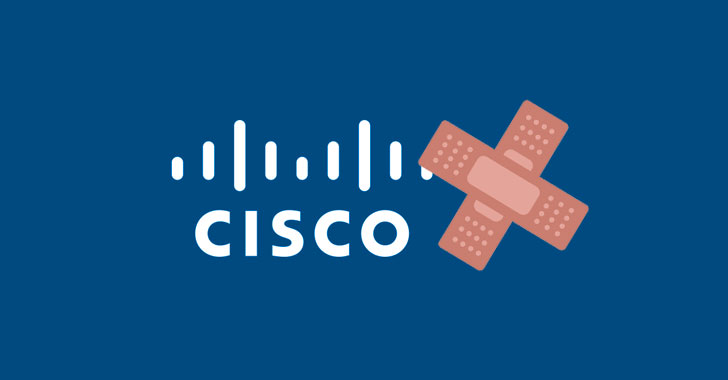Cisco on Wednesday released patches to contain multiple flaws in
its software that could be abused to leak sensitive information on
susceptible appliances.
The issue, assigned the identifier CVE-2022-20866[1]
(CVSS score: 7.4), has been described as a “logic error” when
handling RSA keys on devices running Cisco Adaptive Security
Appliance (ASA) Software and Cisco Firepower Threat Defense (FTD)
Software.
Successful exploitation of the flaw could allow an attacker to
retrieve the RSA private key by means of a Lenstra side-channel attack[2] against the targeted
device.
“If an attacker obtains the RSA private key, they could use the
key to impersonate a device that is running Cisco ASA Software or
Cisco FTD Software or to decrypt the device traffic,” Cisco warned
in an advisory issued on August 10.
Cisco noted that the flaw impacts only Cisco ASA Software
releases 9.16.1 and later and Cisco FTD Software releases 7.0.0 and
later. Affected products are listed below –
- ASA 5506-X with FirePOWER Services
- ASA 5506H-X with FirePOWER Services
- ASA 5506W-X with FirePOWER Services
- ASA 5508-X with FirePOWER Services
- ASA 5516-X with FirePOWER Services
- Firepower 1000 Series Next-Generation Firewall
- Firepower 2100 Series Security Appliances
- Firepower 4100 Series Security Appliances
- Firepower 9300 Series Security Appliances, and
- Secure Firewall 3100
ASA software versions 9.16.3.19, 9.17.1.13, and 9.18.2, and FTD
software releases 7.0.4, 7.1.0.2-2, and 7.2.0.1 have been released
to address the security vulnerability.
Cisco credited Nadia Heninger and George Sullivan of the
University of California San Diego and Jackson Sippe and Eric
Wustrow of the University of Colorado Boulder for reporting the
bug.
Also patched by Cisco is a client-side request smuggling flaw in
the Clientless SSL VPN[3]
(WebVPN) component of Cisco Adaptive Security Appliance (ASA)
Software that could enable an unauthenticated, remote attacker to
conduct browser-based attacks, such as cross-site scripting,
against the victim.
The company said the weakness, CVE-2022-20713[4]
(CVSS score: 4.3), impact Cisco devices running a release of Cisco
ASA Software earlier than release 9.17(1) and have the Clientless
SSL VPN feature turned on.
While there are no workarounds to remediate the flaw, affected
users can disable the Clientless SSL VPN feature, although Cisco
warns doing so “may negatively impact the functionality or
performance” of the network.
The development comes as cybersecurity firm Rapid7 disclosed[5]
details of 10 bugs found in ASA, Adaptive Security Device Manager
(ASDM), and FirePOWER Services Software for ASA, seven of which
have since been addressed by Cisco.
These include CVE-2022-20829[6]
(CVSS score: 9.1), CVE-2022-20651[7]
(CVSS score: 5.5), CVE-2021-1585[8]
(CVSS score: 7.5), CVE-2022-20828[9]
(CVSS score: 6.5), and three other flaws that have not been
assigned a CVE identifier.
References
- ^
CVE-2022-20866
(tools.cisco.com) - ^
Lenstra
side-channel attack (www.redhat.com) - ^
Clientless SSL VPN
(www.cisco.com) - ^
CVE-2022-20713
(tools.cisco.com) - ^
disclosed
(www.rapid7.com) - ^
CVE-2022-20829
(tools.cisco.com) - ^
CVE-2022-20651
(tools.cisco.com) - ^
CVE-2021-1585
(tools.cisco.com) - ^
CVE-2022-20828
(tools.cisco.com)
Read more https://thehackernews.com/2022/08/cisco-patches-high-severity.html


